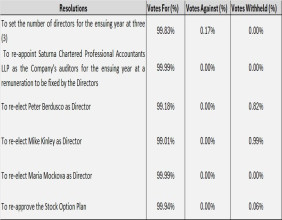Highlights
- The S&P/TSX composite index closed down, driven by declines in energy and base metals.
- U.S. markets also experienced losses, with the Dow Jones and S&P 500 indexes falling.
- The Bank of Canada lowered interest rates, signaling a slower pace of future cuts.
The Canadian stock market, represented by the S&P/TSX composite index, experienced a significant decline on Thursday. A drop of nearly 250 points was attributed to weaker performances in energy and base metals sectors. This marked a negative day for Canadian equities as broader market trends reflected investor caution.
Weakness in Key Sectors
Energy and base metals played a major role in the decline of Canada's main stock index. These sectors, often sensitive to global economic shifts and commodity price movements, saw notable weakness, contributing to the overall drop in the index. The broader impact on the market was visible as these sectors struggled to maintain positive momentum.
U.S. Market Trends
In parallel, U.S. markets also closed lower, with the Dow Jones industrial average, S&P 500, and Nasdaq all experiencing losses. These declines reflected a broader negative sentiment, with various factors influencing the downturn in the stock prices of companies across multiple industries. The weak performance of major U.S. indices mirrored the challenges faced by global markets.
Bank of Canada's Rate Decision
On the monetary policy front, the Bank of Canada made headlines with an interest rate cut. The central bank lowered its policy rate by half a percentage point, signaling a shift toward a more cautious approach to future rate reductions. This move was part of the Bank’s broader strategy to manage economic conditions in the country while responding to ongoing global financial trends.
Monetary Policy Outlook
The Bank of Canada has indicated that the pace of interest rate cuts will likely slow in the near future. While the economy is expected to evolve in a broadly stable manner, the central bank’s decision to adopt a more gradual approach reflects the need for balanced economic growth. Governor Tiff Macklem noted that the current rate adjustments align with the broader economic expectations, setting the stage for a more measured pace going forward.



